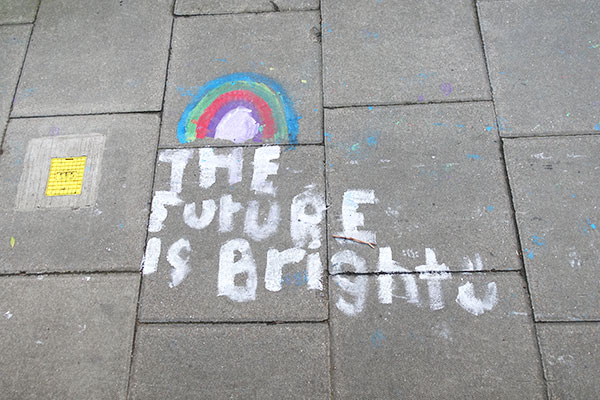Explaining climate and food issues in forms like art and poetry can enable them to reach people who are neurodivergent or from different backgrounds and better enable mass change, a radical new research project has found.
The project, run by sustainable food campaign group Feedback and based on Participatory Action Research (which uses participants as researchers), questioned a group of primarily young people from different backgrounds to on their shopping habits, understanding of food issues and the link with the climate crisis.
A third of respondents said they did not think about the climate when shopping, and others did not think about the farmers who had produced their food.
But a significant result of the research, which was presented at last week’s Oxford Real Farming Conference, was realising the need to cater to different neurological strengths and social backgrounds in the format of any discussion or research.
Participant-researcher Saraya Haddad said: “We came from a mixture of backgrounds. I came from a background of literature. Another participant spoke about how school meals were affecting Islamaphobia by not offering halal meat. Another member is neurodivergent and spoke about how the world was not set up to work with or be aligned with them.”
Prior to joining the project, Haddad said she “never really thought about farmers and “associated food with supermarkets”.
“I am naturally creative and I struggled to understand climate info growing up as it was using lots of scientific jargon and stats,” she explained.
“We need to consider the climate crisis and food system issues from an inter disciplinary basis and invite people from different backgrounds.”

Haddad said that reading a novel on the topic “was the first time I felt like I understood the climate crisis and what’s more, felt passionate to act on it”. “I went from complete obliviousness to a desire to change the way I live and spread the word,” she added.
To publish their findings, the group decided to use a video combined with a poem to bring to life the views of their respondents. “We wanted to publish our results in a way that values the creativity and accessibility. If we published our results in a paper, how many people would actually read it?” asked Haddad.
As well as reaching more people, Haddad said this way of exploring concepts and spreading information is also likely to be more representative, as people relate better to the topics being explored. “When it comes to the climate crisis, too many stories are erased. We see a lot of the same stories,” she said.
“We need more people to think intentionally about where they shop and what they buy given the urgent climate crisis.
Fellow researcher-participant Warami Jackson, of the Royal Agricultural University, said: “The research has reminded me that you do have to speak in different languages to get your point across.”













Are Haddad’s group’s report & poem available to share? If so, I would be interested to read them.
Black and white photography plays an important role in art, capturing the depth of the moment and emotions without distracting colors. Its minimalism and contrast create magical images. If you are interested in this aspect, the Depoisitphotos blog article will offer 50 inspiring quotes about this art, revealing its essence and uniqueness. I recommend that you look at this blog to deepen your knowledge and find spiritual inspiration.